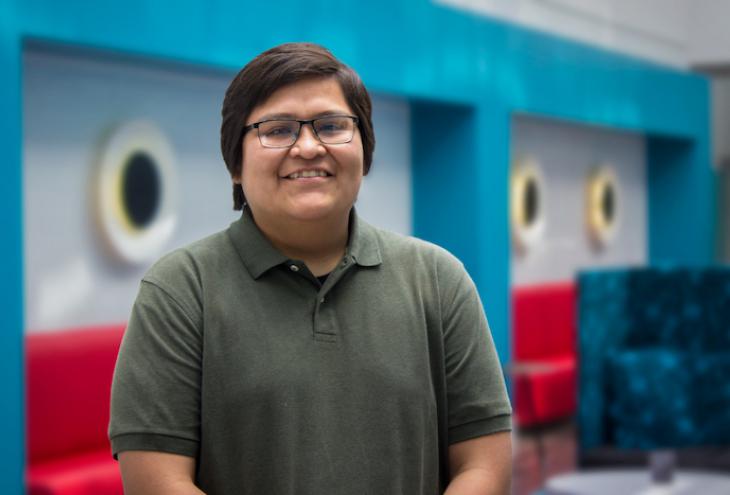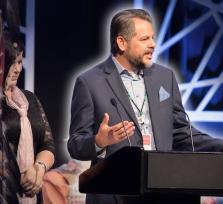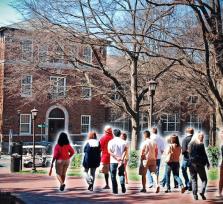Cedric Mannie grew up in a small rural community called Kinlichee on the Navajo Reservation. The neighbors were more than 200 yards away, but it was not nearly as remote as some other areas. Growing up Mannie did his share of everyday tasks like chopping and hauling wood, and while he didn’t always enjoy the work, he recognized these jobs as necessary contributions.
Mannie has come far from his small town and his daily chores — he is now a senior studying computer engineering at Utah State University. Thinking about where he is now and where he came from, he recognizes that he didn’t have as much access to opportunities and luxuries as some of his college peers. While he didn’t have everything he may have wanted, his parents made sure he had everything he needed in order to succeed — emphasizing the importance of getting a degree and helping him create a plan for when he would leave home.
Both his parents worked and occasionally did have the funds for some luxuries. While it was not just one moment that sparked Mannie’s interest in computers, one of those luxuries — video games — certainly helped. The games provided hours of entertainment, and this distraction was important to Mannie’s parents too, as alcoholism and drug use are common in their area.
Learning about technology turned out to be a natural fit for Mannie, who wanted to investigate how these advances came about and where they were going.
Mannie admits that he barely understood computers while growing up because he had limited access to them. Thinking of the video game consoles, he wondered how such a small box could perform the tasks being displayed on the screen. At the same time, some of them had a big AC power brick and husky build. His curiosity blossomed as new technologies became smaller and more efficient. Learning about technology turned out to be a natural fit for Mannie, who wanted to investigate how these advances came about and where they were going. Technology would also have an impact when he learned that it has applications in the medical field. Once Mannie witnessed how a pacemaker was able to control an individual’s heartbeat — and save a life — he readily understood that technology can be a game-changer in daily life. After some time, Mannie knew that he wanted to pursue his interests through a college degree, instead of falling into a destructive lifestyle.
As a high school student hoping to be a first-generation college student, Mannie had no idea what to do. And while his parents encouraged him, they didn’t know much about it either. Fortunately, Mannie also had friends who were hugely helpful in his college planning. His friends helped him through the application and selection process — it was Mannie and his friends who decided to learn their way as they went along.
The main barrier Mannie encountered was financial. After high school graduation, he worked in fast food assembling burgers. After a couple of months, he got a call from the local tribal scholarship office informing him that he qualified for the prestigious Chief Manuelito Scholarship. While it was too late to register and be prepared for a fall start, he deferred to spring semester and was ready to begin college. Still, it was a challenge to physically get to the campus, since Utah State University was far from home and his parents worked. He asked a few different relatives for rides and finally made it, thankful for all those who helped him get there.
For first-generation college students, the path of higher education can be a mystery. Mannie is hoping to change that for his family. He cares about inspiring others to pursue their interests and succeed at college. He is also candid and honest about the journey — there are times it is hard to see if this path, this course, or this major will be the “right” one. Based on his experiences so far, and his commitment to the journey, he is well on his way, learning by doing, and showing his family how to be successful in college.














